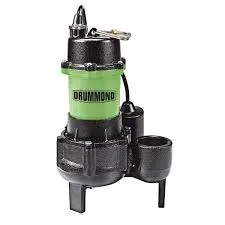Malayalam
- Afrikaans
- Albanian
- Amharic
- Arabic
- Armenian
- Azerbaijani
- Basque
- Belarusian
- Bengali
- Bosnian
- Bulgarian
- Catalan
- Cebuano
- Corsican
- Croatian
- Czech
- Danish
- Dutch
- English
- Esperanto
- Estonian
- Finnish
- French
- Frisian
- Galician
- Georgian
- German
- Greek
- Gujarati
- Haitian Creole
- hausa
- hawaiian
- Hebrew
- Hindi
- Miao
- Hungarian
- Icelandic
- igbo
- Indonesian
- irish
- Italian
- Japanese
- Javanese
- Kannada
- kazakh
- Khmer
- Rwandese
- Korean
- Kurdish
- Kyrgyz
- Lao
- Latin
- Latvian
- Lithuanian
- Luxembourgish
- Macedonian
- Malgashi
- Malay
- Malayalam
- Maltese
- Maori
- Marathi
- Mongolian
- Myanmar
- Nepali
- Norwegian
- Norwegian
- Occitan
- Pashto
- Persian
- Polish
- Portuguese
- Punjabi
- Romanian
- Russian
- Samoan
- Scottish Gaelic
- Serbian
- Sesotho
- Shona
- Sindhi
- Sinhala
- Slovak
- Slovenian
- Somali
- Spanish
- Sundanese
- Swahili
- Swedish
- Tagalog
- Tajik
- Tamil
- Tatar
- Telugu
- Thai
- Turkish
- Turkmen
- Ukrainian
- Urdu
- Uighur
- Uzbek
- Vietnamese
- Welsh
- Bantu
- Yiddish
- Yoruba
- Zulu
Telephone: +86 13120555503
Email: frank@cypump.com
നവം . 27, 2024 12:49 Back to list
Efficient Pump Solutions for Cleaning Water Pipelines and Maintaining Flow Quality
The Importance of Water Pipeline Cleaning Pumps
Water is a vital resource that sustains life and supports various industries. However, the efficiency of water distribution systems can be severely impacted by contaminants and sediment build-up in pipelines. To address this issue, water pipeline cleaning pumps play a crucial role in maintaining the integrity and functionality of water supply systems. This article delves into the significance, operation, and benefits of these cleaning pumps.
Understanding Water Pipeline Cleaning
Water pipelines transport potable water from treatment facilities to consumers’ taps. Over time, pollutants, mineral deposits, and biofilm can accumulate inside these pipelines, leading to reduced flow rates, poor water quality, and even infrastructure damage. Regular maintenance and cleaning are essential to prevent these problems, which is where cleaning pumps come into play. They are specialized devices designed to clear blockages and ensure that water flows freely through the system.
The Role of Cleaning Pumps
Water pipeline cleaning pumps are engineered to handle various cleaning techniques, including flushing, jetting, and chemical cleaning. Their primary function is to generate high-pressure water jets that dislodge build-up within the pipes. Some models incorporate vacuum systems that remove debris from the pipeline, while others utilize rotating nozzles to enhance cleaning efficiency.
These pumps can be implemented in several scenarios, including
1. Municipal Water Supply Systems Municipalities employ cleaning pumps to ensure their water distribution networks remain clean and free of contaminants. This not only enhances the quality of drinking water but also extends the lifespan of the pipeline infrastructure.
2. Industrial Applications Various industries depend on clean water supplies for their operations. Cleaning pumps are used to maintain the pipelines that service factories, refineries, and processing plants, ensuring that their water sources meet required standards.
water pipeline cleaning pump

3. Wastewater Treatment In wastewater systems, cleaning pumps help prevent clogging and ensure the efficiency of treatment processes. Regular cleaning reduces the risk of backups and overflow, which can lead to significant environmental and health hazards.
Advantages of Using Pipeline Cleaning Pumps
1. Enhanced Water Quality By removing contaminants and debris from pipelines, cleaning pumps significantly improve the quality of water supplied to consumers. This is critical for public health, as contaminated water can lead to severe health issues.
2. Increased Flow Rates With regular cleaning, pipelines experience fewer blockages, leading to better water flow rates. This ensures that water reaches consumers promptly and in adequate quantities.
3. Cost Efficiency Investing in cleaning pumps can lead to long-term savings. By maintaining pipelines and preventing significant build-up, utilities can avoid costly repairs and replacements due to damage caused by neglect.
4. Environmental Sustainability Maintaining clean water supply systems contributes to environmental sustainability. Clean water reduces the need for excessive water treatment, thereby minimizing the ecological impact associated with chemical treatment processes.
5. Prolonged Lifespan of Infrastructure Regular cleaning mitigates wear and tear on pipelines, thereby extending the overall lifespan of water distribution systems. This ensures that the investment in infrastructure is preserved over time.
Conclusion
Water pipeline cleaning pumps are indispensable tools that help maintain the efficiency and safety of water distribution systems. They play a critical role in ensuring that clean, potable water reaches consumers while preventing possible infrastructure failures. Given the challenges of water supply management, investing in proper cleaning technology is essential for municipalities and industries alike. By recognizing the importance of water pipeline cleaning pumps, we can better appreciate the complexities behind delivering this vital resource and the efforts required to keep it clean and safe for all.
-
High-Performance Air Pumps for Sand & Gravel | Efficient Transport
NewsAug.03,2025
-
ISG Series Vertical Pipeline Pump - Chi Yuan Pumps Co., LTD.|Energy Efficiency, Corrosion Resistance
NewsAug.03,2025
-
ISG Series Pipeline Pump - Chi Yuan Pumps | Energy Efficiency&Compact Design
NewsAug.03,2025
-
ISG Series Vertical Pipeline Pump - Chi Yuan Pumps Co., LTD.|High Efficiency, Low Noise, Durable
NewsAug.02,2025
-
ISG Series Vertical Pipeline Pump - Chi Yuan Pumps | High Efficiency, Low Noise
NewsAug.02,2025
-
ISG Series Vertical Pipeline Pump- Chi Yuan Pumps Co., LTD.|High Efficiency&Compact Design
NewsAug.02,2025










